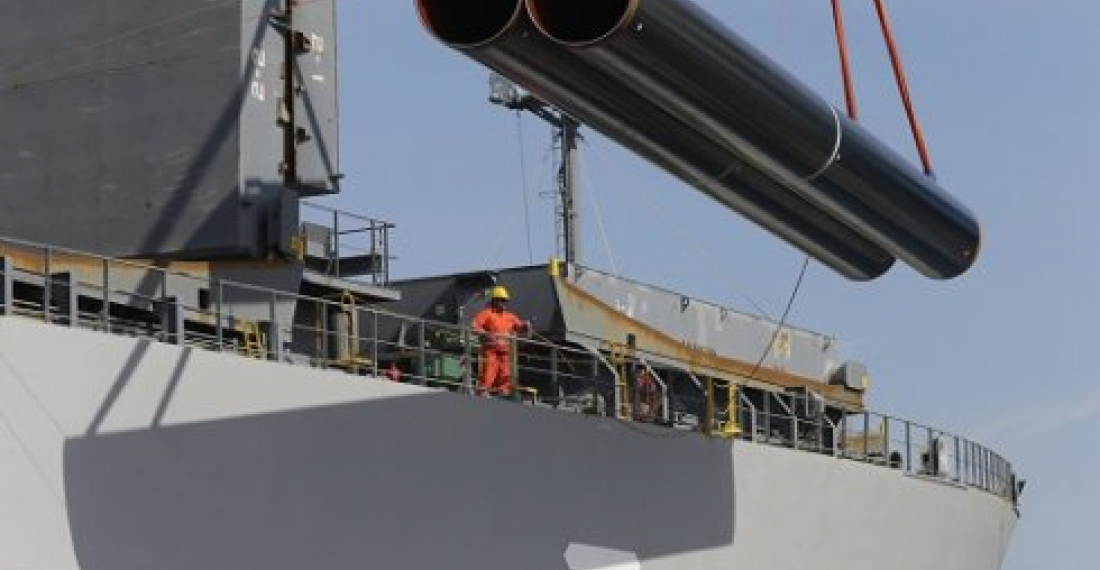The European Investment Bank on Tuesday approved a 1.5 billion euro loan for the Trans-Adriatic Pipeline (TAP), part of a $40 billion project to bring new gas supplies to Europe. TAP is seen as a crucial element in the European Union's attempt to reduce its dependence on Russian gas by developing the so-called Southern Gas Corridor which is expected to bring around 16 billion cubic metres of gas per year to Europe by 2020.
The gas would come from the Shah Deniz 2 field in Azerbaijan via several routes, including the Trans-Adriatic Pipeline (TAP) to Greece, Albania and Italy.
TAP is slated to bring up to 10 billion cubic metres of gas to Italy from Shah Deniz 2 - one of the world's largest gas fields developed by a BP-led (BP.L) consortium.
EIB Vice President Andrew McDowell told Reuters the TAP project would help to offset declining European production, provide a diversified source of gas and displace coal-fired power generation in central and south eastern Europe.
TAP would be the first non-Russian gas pipeline to supply Europe since Algeria's Medgaz link nearly a decade ago, helping to dilute Gazprom's one-third share of Europe's gas market.
"The argument we are persuaded by, that made by the European Commission, is that it is simply not fair to leave large parts of Europe, particularly central and south eastern Europe, at the mercy of a single supplier," McDowell told Reuters.
The 870-km pipeline will join up with the Trans Anatolian Pipeline (TANAP) at the Turkish border, crossing Greece, Albania and the Adriatic Sea. Its shareholders include Azerbaijan energy group Socar, oil major BP and Italian gas group Snam.
McDowell said he hoped the EIB's stamp of approval would smooth the way for the 4.5 billion euro ($5.57 billion) pipeline to seek further financing from the market in the coming weeks.
The European Bank for Reconstruction and Development is also expecting to decide on a loan for TAP this year, a spokesman said. In October, it approved a $500 million loan for the TANAP pipeline, through which the first gas flows are expected in 2018.
commonspace.eu with Reuters.






